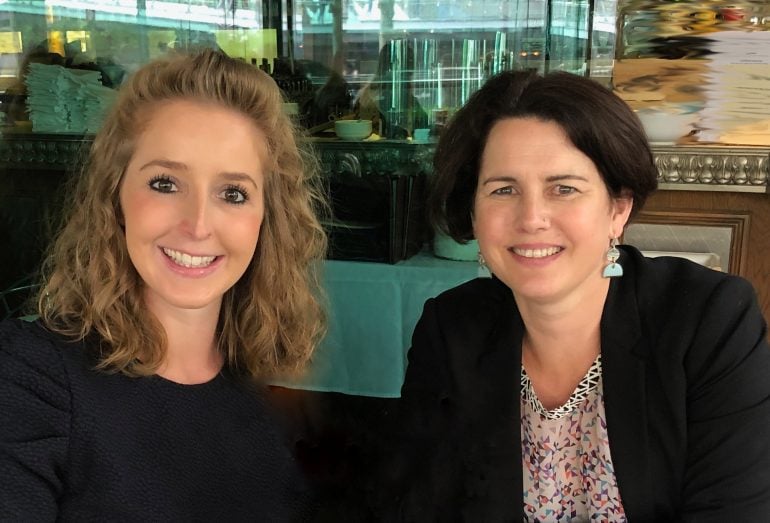Hearing technology Hemideina has raised $10 million series A.
New cornerstone investors in the round include Escala Partners, InterValley Ventures and Geoni Capital.
The funds are to build the team and technology development program, with one eye on a potential IPO down the track.
Research scientists Dr Kate Lomas and Dr Elizabeth Williams founded their startup in 2017, inspired by the New Zealand insect hemideina crassidens, which can hear in the same auditory range as humans.
Their wireless hearing implant uses a unique stimulation model, with a mechanical signal processing system that captures and preserves sound information that aims to deliver truer, natural sound experiences. It helps filter out background noise and allows for a greater range of auditory perception so that someone with the device can still enjoy music and have better tonal language perception, a capability other current digital signal processing cannot match.
The Hera Wireless Implant System device is also smaller, like a small ear-bud headphone – without an over ear battery – and the surgery for it will be simpler and faster, as well as cutting the post-surgery wait time to use the device from two weeks to the same day.
Testing times
Dr Williams, Hemideina’s CEO, said the funding will help them reach technical milestones around pre-clinical testing of the Hera system’s stimulation strategy (the pattern of electrical impulses stimulating nerves within the cochlear to present sound) for an improved audio response ahead of human clinical trials.
They’re hoping the system will deliver improved hearing-in-noise, music enjoyment, emotion perception and tonal language perception compared to other cochlear implants.
“We are incredibly proud of the high-calibre work to date, which has contributed to building confidence around our technology with investors and this successful raise,” Dr Williams said.
“Our goal is to deliver a paradigm shift in cochlear implant performance to people suffering from severe-to-profound hearing loss and make the world of sound more accessible through our technology.”
She said that while 60 million people suffer from hearing loss globally, just one million have had cochlear implant treatment in the 40 years ago since it was developed, which means it’s a largely underserved market.
“We are incredibly pleased to have such enthusiastic and supportive investors on board, who share our vision to challenge the status quo, and see the opportunity that Hemideina presents to disrupt the established and large global market with an innovative new approach to hearing device implant technology,” she said.
“Based on the significant unmet clinical need, the global aging population and increased prevalence of hearing loss, we’ve observed that investors place a high value on hearing treatment companies and Hemideina should not be an exception to that rule.”
Hemideina has now received around $20 million in grants and equity funding to date.
The company is now looking to fill eight new roles before the end of the year.




















Trending
Daily startup news and insights, delivered to your inbox.